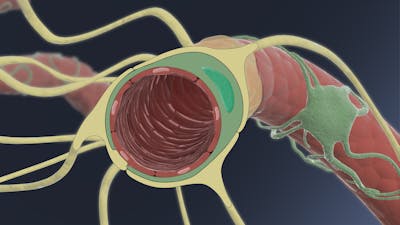The grand challenge of targeting drugs to the brain
Targeting of drugs to the brain presents one of the greatest challenges in medicine. We know more than ever about brain diseases, yet drugs developed for Alzheimer’s disease, Parkinson’s disease, brain enzyme deficiencies, and brain cancers often fail in the clinic. One major reason is that drugs cannot cross the blood-brain barrier (BBB). For Alzheimer’s disease alone, almost 300 experimental drugs have been tested in more than 1,000 clinical trials over the past 10 years. More than 99% of these trials have failed, in part because the drugs could not reach their optimal concentration in the brain. New brain targeting approaches are urgently needed to improve the lives of millions of patients suffering from neurodegeneration, brain enzyme deficiencies, psychiatric disorders, brain cancers, and other brain diseases. In 2019, the Wyss Institute at Harvard University established its Brain Targeting Program to address this challenge. We partner with academic scientists, companies, foundations, and individuals who share our vision. Learn how you can get involved through the avenues described below.
Through pre-competitive sponsorship of our Brain Targeting Program, multiple companies sponsor the discovery of brain-targeting shuttles that can benefit brain drug delivery efforts. We are discovering and optimizing a next-generation brain transport platform that helps enable sponsors to deliver diverse biologic drugs to their CNS targets. We offer non-exclusive licenses to our brain shuttles and our engineered brain transport mouse models.
We engage in tailored collaborations to combine our brain shuttles with experimental brain therapeutics to create innovated brain targeted fusion drugs. We are collaborating with academic scientists and companies to develop brain-targeted drugs for specific diseases including Alzheimer’s disease, Parkinson’s disease, ALS, genetic enzyme deficiencies, depression, epilepsy and others. We are also collaborating to optimize our shuttles for delivery of specific drug types and specific drugs.
The Brain Targeting Program at Harvard University is uniquely positioned to advance ground-breaking approaches enabling the development of innovative brain disease treatments. For donors who share our passion to improve the lives of patients with brain diseases, this prospect presents a unique opportunity to support a program and a center that can help catalyze the development of major breakthroughs in brain disease treatment.
Help us cross the ultimate barrier to new brain disease treatments



Creating a premier center for brain-targeted therapeutic innovation
Our team is developing advanced technologies for precision delivery of drugs to the brain, or brain targeting. We aim to enable every scientist working on brain treatments to deliver their drugs to diseased brain cells efficiently and safely. Our program is organized to promote unique pre-competitive collaborations among diverse stakeholders, including competing pharma, biotech and academic labs, granting agencies, and philanthropies. Our lead panels of brain shuttles can be fused with drugs, increasing their transport into the brain by 10- to 50-fold. We are currently licensing our transport technologies and collaborating broadly to develop novel brain-targeted therapies. These activities are the focus of our nascent center for brain-targeted therapeutic innovation.
